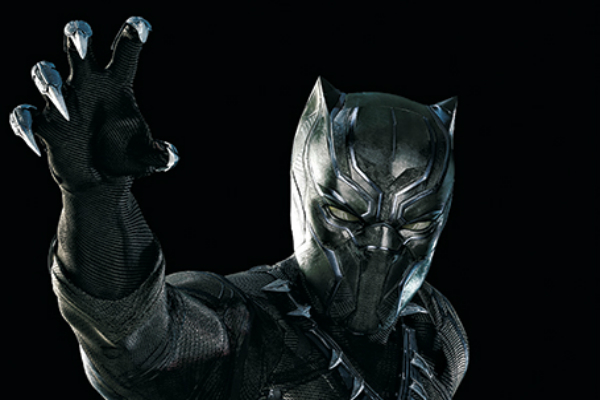This article was written by Ricardo A. Hazell one of our friends over at TheShadowLeague.com
Created in 1966 by Stan Lee and Jack Kirby, the Black Panther has since grown into one of the greatest heroes of African descent in the history of major comic book publishing
Created in 1966 by Stan Lee and Jack Kirby, the Black Panther has since grown into one of the greatest, if not the greatest, hero of African descent in the history of major comic book publishing. The Black Panther’s appearances in Jungle Action were initially masterfully written by veteran writer Don McGregor, he was ahead of his time in more ways than one. Black Panther was the first black comic book character to have a title of which he was the primary protagonist, outdating the Falcon and Luke Cage of Marvel and Black Lightning of DC Comics by years.

Though many may assume otherwise, the Black Panther comic book character predates the actual Black Panther Party by almost a year. However, the synergy that was in the air regarding the uplifting of black people and the need for radical change regarding the way people of African descent were portrayed in all forms of media electrified the atmosphere.
Co-creator Stan Lee would later change the name of the character to the Black Leopard, albeit briefly, because some kept assuming the book was some sort of homage to the Black Panther Party. It was eventually changed back to the original because readers simply did not care for Black Leopard much at all.
Late, great Milestone Comics writer Dwyane McDuffie had this to say about Don’s critically-acclaimed run on Jungle Action.
“This overlooked and underrated classic is arguably the most tightly written multi-part superhero epic ever. If you can get your hands on it … sit down and read the whole thing. It’s damn-near flawless, every issue, every scene, a functional, necessary part of the whole. Okay, now go back and read any individual issue. You’ll find seamlessly integrated words and pictures; clearly introduced characters and situations; a concise (sometimes even transparent) recap; beautifully developed character relationships; at least one cool new villain; a stunning action set piece to test our hero’s skills and resolve; and a story that is always moving forward towards a definite and satisfying conclusion. That’s what we should all be delivering, every single month. Don and company did it in only 17 story pages per issue.”
Though he was only a fictional character, the Black Panther was important for a multitude of reasons. First off, he was important to young, college-age black comic book readers because he represented a strong, intelligent and infinitely resourceful character that was the equal of such wildly popular characters as Captain America, Daredevil and the Fantastic Four. This was telling for a multitude of reasons, one of them being that it counteracted the mainstream, conservative notion that people of African descent were in need of white guidance at every turn and were incapable of the complex nuances often associated with other superheroes.
Click here to read the rest of this article at TheShadowLeague.com

-

 Activism1 week ago
Activism1 week agoPhi Beta Sigma’s Tylik McMillan Appointed as National Director of Youth and College for the NAACP
-

 Activism4 days ago
Activism4 days agoHBCU AWAREFEST Expands Into Power-Packed Week of Events Focused on Culture, Policy and Philanthropy Supporting Black Students
-

 Colleges2 days ago
Colleges2 days agoASU, FAMU, and DSU Face Off in Digital Fundraising Battle for $25,000





